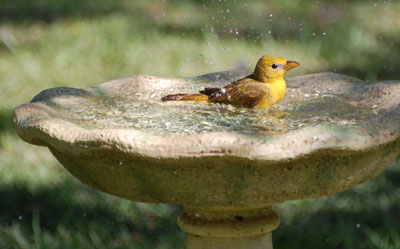
Crile R. Dean – Winter, Sparks , Nevada 1960’s
Daddy is from a generation that worked hard. That never feared sweat and toil. He grew up on the land, took care of animals and studied late in the night to be the best he could be.
All my life his big hands tackled plumbing and electrical and automotive tasks. He climbed, fearless, to the roof to patch leaks. He ascended to the top of the thirty foot apricot tree to cut off a dead branch. No qualms.
I’m sick and can’t sit up in my seat in class any longer. My third grade teacher says, go to the nurse. The nurse feels my head and says, lie down awhile. I remember thinking, lying down feels good.
I stretch. Open my eyes. No lights. Dead silence. No kid noise in the halls. No teachers talking. No one laughing or running or hitting the tether-ball on the playground. No nurse.
Where is everyone? My heartbeat is so loud my ears hurt. My chest hurts. I’m hot all over. My queasy stomach forgotten.
“What are you doing here?” The principal says as I stand in his doorway.
“I was sick. I went to the nurse. She didn’t wake me. She left me.”
“Let’s get you home.”
I hope I’m so small in the front seat of the Principal’s car that no one will see me. We pass kids on the street. Playing ball. Walking. Talking. Laughing. Every head turns our way. Kids know the Principal’s car. Now they know I’m in his car.
My face is hot. I want to disappear. Everyone will think I’ve done something wrong.
“Thank you,” Daddy smiles broadly at the Principal, “for getting her home safe,” he shakes the Principal’s hand, “no harm done.”
No harm done? I’ll never go to the nurse’s office again.
Daddy cared for us. He mended the arm of my sister’s glasses. He maneuvered tiny tweezers to repair Mother’s necklace chain. He laid brick and cinder block walls. He mowed the lawn and used the edger with gusto, all with pride in a job well done. He planted grapes and fruit trees and worked hard in their harvest. He shared the bounty with friends and strangers. He loved life. He laughed and smiled and believed all could be conquered.
I feel sick all over but I’d rather be sick in class than go to the nurse’s office. That’s a place to avoid like the plague. If I can hold on another fifteen minutes, school will be out.
“Did you go to the nurse?” Mother takes my temperature, “Measles. Sixteen is old for measles. Go to bed. Why didn’t you come home early?”
I just want to lie down and block out everything.
I wake to distant sounds of family around the supper table. It’s dark in my room. I’m hot. Parched. Safe at home.
Then I’m eight years old again and waking in that deserted nurse’s office.
I haven’t thought of that since it happened. No wonder I avoided the nurse today. I smile in the dark. I’m not that little girl any more. I’ll be strong, like Daddy is strong.

Daddy working the trailer hitch, 1980’s, with Uncle Bruce observing
I remember Daddy working under the car in the garage. Oil change, transmission repair, tires patched, some busted blown broken component replaced – whatever it took – so the car would once again go.
I remember we sat stopped off the side of Route 66, the Arizona desert undulating pinks and browns and beiges in the sweltering 100 plus degrees of an August day, while Daddy changed a blown tired. We kids squabbled about the sticky back seat in the constant furnace blast of air that is summer, while in the front seat, Mother looked faint, anxious and exhausted.
It really ticks me off that I have Mother’s stamina. Or lack of stamina. She fatigued. I fatigue. I swore I’d be like Daddy. Strong, independent, capable, positive. Healthy.
Not like Mother. Tired. Weepy. Stressed out. She spent three months in bed after a hysterectomy, then had pneumonia, then a lupus type flare-up that cleared up as mysteriously as it had come. Always something wrong.
I won’t be like her. Yet here I am. Had to change my entire diet to stop constant sinus infections that morph into bronchitis. Funky hormones that don’t work right. Thyroid disease. I’ll be on meds the rest of my life. Really ticks me off.
Daddy did whatever it took to take care of us. Even when it meant auto repair work that was dirty and greasy and often held up our well-laid plans. I remember I thought when I grew up I’d have enough money to pay for such jobs. No getting dirty for the man in my life. No waiting by the side of the road for a maybe-maybe not rescue.
Except no man ever measured up. No man ever rode to my rescue. Instead it was me who had to pay for repairs. It was me who had to find solutions. I remember long distance calls as I sat alongside the highway waiting for the tow truck.
“Here’s what it sounded like, Daddy,” I’d say, “what do I tell the mechanic?”
Breathe deeply, girl. How would Daddy handle it? He’d be grateful for another day of life, another opportunity to be positive with those around him. He was cheerful. He knew God made him and he could trust God for who he was.
I have to choose. Believe. Deal with who I am and what my body needs. What’s the alternative? Get mad? Get depressed? Avoid doctors and nurses offices? Binge on problematic foods and suffer the consequences? Give in to needing to be pampered, like Mother?
There’s no contest. I won’t be like her. I can’t change the way I was made. I can control how I respond. Like Daddy or like Mother.

Daddy and Mother, Pomona, Ca 1990’s
I sit in the house that was Daddy and Mother’s and marvel that he was my retirement age when they moved in here. My age when he poured concrete and installed the heating/cooling unit, built the back porch overhang, ran electrical wiring for lamps where the old Craftsman style house needed more electrical outlets, replaced the shower stall, added cabinets to a bare kitchen wall, hung a microwave, toaster and electric can opener under those same cabinets, hung shelf brackets on the walls for shelves that now hold books, two and three rows deep. And he did all this while working a full-time job that included hours on the highway. He may be gone now, his earthly productiveness finished, but I see him everywhere I look.
My retirement is an unexpected journey: freedom to not be in the mad paced work world; freedom to have energy for exercise; freedom to learn new things; to take classes; to write; to cook, which is a toss-up – successful meal or hardly edible – freedom to be the best I can be, and most surprising, freedom to be at peace with Mother.
By the time Daddy had slowed in age and had stopped trying to repair automobiles with their computer components and modern molded plastic parts, I’d learned to do some rehab and repair items with my own hands. Though never as detailed as the skills Daddy had and never with the power that flowed from his large hands.
He walked three miles a day up until six months before he died. Cancer. Something takes each of us at the end, right? He was six weeks away from eighty-nine. He loved life and lived it fully. He believed he was headed to a place without pain or limitations or suffering. I believe, too. I’ll see him there, one day.
Meanwhile, life in this old house continues for Mother and me. I’m here so her days will end in her own home.
She has surprised me by learning to let go of the expectation I could do what Daddy did. While I didn’t inherit his big hands or his strength, I did inherit his work principle and his belief in joy and love. The bedrock he gave my life lives. I decide to laugh and believe that all can be conquered. And some days I see a glimmer of Mother deciding to give up her worry.
Mother keeps on going. Through the pain of a twisted spine, crooked and hurting hips, heart disease, swollen legs, heavy medications with weird side effects, she keeps moving. She’s nearly eighty-eight. She might have it easier in these late days if she’d kept moving and walking years ago. If she’d changed her diet and dealt with her swollen legs in the decades before heart disease took over.
Still, I’ve come to the late realization that she’s much more of a fighter than I ever knew. She’s stubborn and no one will stop her until she’s ready to stop.
“Quit nagging me to eat,” she pushes her plate away. She looks small and frail after two months bedfast with bruising and sores on her leg. She lost her appetite and went down another ten pounds.
“Are you ready to quit,” I stand next to her in her permanent spot at the dining room table, hands on my hips, and try to keep the frustration out of my voice, “ready to go home to God? Ready to finish this life?”
She doesn’t look at me.
“Because if you don’t eat, that’s what will happen.” I watch her as she thinks it over.
She pulls her plate back and takes another bite, “No. I’m not ready to go.”

Mother – all dressed up for church
That was last month. Now she’s back making her own breakfast. Gets herself dressed. Pulls on compression hose. Takes her vitamins and medications. Moves around the house again. Her weight is up two pounds.
Maybe it’s ok for me to be like Mother. She’s a survivor. Daddy was a survivor. I can take the best from both of them. I’m a survivor.












